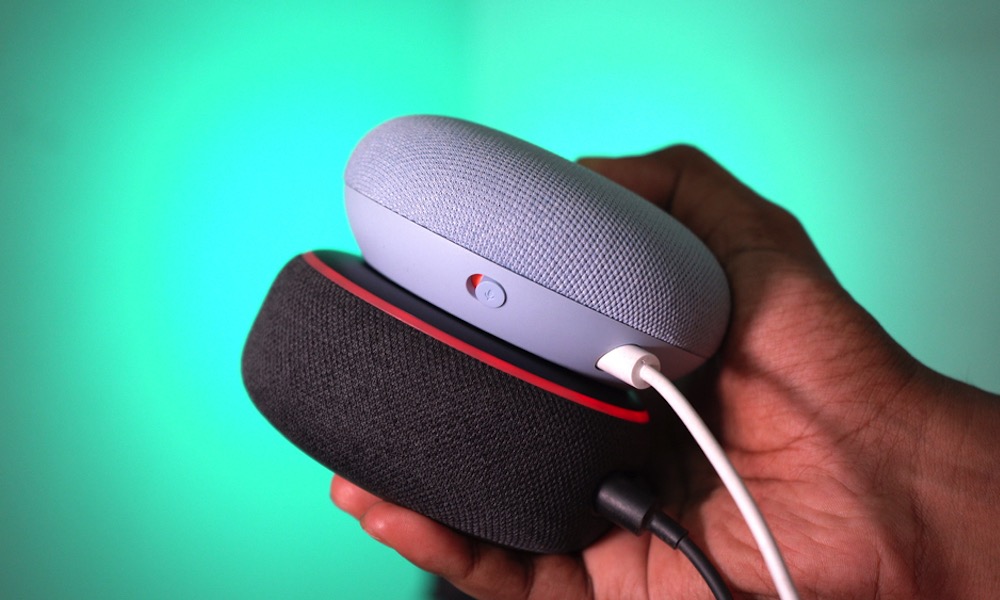Cross-Compatibility with Apple HomeKit, Amazon Alexa, Google Assistant, and So Much More Starts Next Year
 Credit: Apple
Credit: Apple
Toggle Dark Mode
If you’ve been eagerly waiting for the arrival of the Matter standard to unify your smart home devices, it looks like you’re going to have to cool your heels for a bit longer.
The Connectivity Standards Alliance (CSA), which is the group responsible for Matter, recently announced that it will be delaying the launch of the new interoperable smart home standard to sometime in 2022.
In late 2019, Apple joined forces with Amazon, Google, and the Zigbee Alliance to form a new working group known as Project Connected Home Over IP, or “Project CHIP”, that aimed to solve all the confusing interoperability problems with home automation accessories.
The vision was that someday you’d be able to use accessories built for Amazon Alexa with HomeKit, or Google Home accessories with Alexa, or really mix and match any group of accessories in any combination.
This actually promised the biggest boon for HomeKit users, since Apple’s ecosystem has traditionally been considerably more limited — HomeKit compatible devices number in the hundreds, while Amazon boasts well over 10,000 Alexa-compatible devices. Alexa also supports many more categories of devices.
Needless to say, however, coming up with a standard that allows all of this to work together isn’t a simple task, although Apple made an important first step last year by open-sourcing HomeKit.
Then, last September, the Zigbee Alliance weighed in with the news that the new open and universal CHIP standard would be ratified sometime in 2021.
Unfortunately, it now looks like they’re going to miss that deadline.
A few months ago the Zigbee Alliance adopted a new name, the Connectivity Standards Alliance and rebranded CHIP as “Matter”, but things have otherwise moved more slowly than expected, undoubtedly hampered by the challenges of the ongoing global health pandemic.
The CSA’s announcement doesn’t provide any specific reasons for the delay, apart from saying that it wants to make sure that it gets things right out of the gate.
Taking an open-source SDK approach means everyone that develops a Matter device can use the same code base. That’s an absolutely critical element to ensuring rapid adoption and market success — but we need to get it right. The ultimate goal remains to deliver a specification and SDK that delivers on our promise to create a common language for the smart home and improve consumer smart home experiences and spur greater innovation.
Connectivity Standards Alliance
It’s a fair assessment when developing a standard like this, since chances are that dozens of hardware manufacturers are going to be building devices to the new specifications. At least, we certainly hope so, and as smart home fans ourselves, the last thing we want to see is compatibility problems that require an endless stream of firmware updates — or even product replacements — to get everything working properly.
Continued Momentum
To be clear, the CSA is still rapidly forging ahead, and it notes that the feature set for Matter has been fully defined.
In fact, four test events have already been conducted for the new standard, with the most recent one featuring over 60 devices and over 40 unique companies.
There’s also been a 40 percent increase in the number of contributions to the Matter software development frameworks over the past three months alone.
However, it looks like all this testing has shown the Matter Working Group that it’s truly breaking some significant new ground here, so it really needs to take time to ensure that it’s got all the details right.
The focus now is on building out support for more types of devices, and continuing to test the standard across a much wider array of manufacturers and device types. The group is also expected to hold its first “gated” test event next month, which it describes as a key milestone that will define which Matter devices will be the first ones to come to market.
In addition to the big four smart home ecosystems — Apple HomeKit, Amazon Alexa, Google Home, and Zigbee — the group has announced numerous other big players that will be on board at or very near launch. This includes:
- Assa Abloy (Yale)
- Coolkit (eWeLink)
- Espressif Systems
- Eve Systems
- Infineon Technologies
- Nanoleaf
- Nordic Semiconductor
- NXP Semiconductors
- Schneider Electric
- Signify (Philips Hue & WiZ)
- Silicon Labs
- SmartThings
- Texas Instruments
As of now, the Matter Working Group includes 200 global companies and participation from more than 2,000 individuals, which is over a 10 percent increase from where it was back in May.
Back then, the Matter Working Group was still expecting that it would be able to certify the first devices by the end of 2021, however now that it’s gone through several test events, the group has realized that it needs more time “to meet the expectations of the market” and have a sizeable array of different products ready to go at launch.
In May of this year, we saw a development path with first devices through certification by the end of the year in 2021. With the completion of several test events and forecasting, our members have updated the schedule to reflect a commitment to ensuring that the SDK, and related tools, are ready to meet the expectations of the market when launched and enable a large ecosystem of interoperable Matter products.
Connectivity Standards Alliance
As a result, it expects to continue developing the software frameworks (SDK) and certification program throughout the remainder of this year, with a “pre-ballot” version of the spec available to members by the end of 2021.
If all goes according to plan, the first half of 2022 will see the SDK released and the formal certification program up and running so that the first devices will be ready to land in the hands of eager customers.







